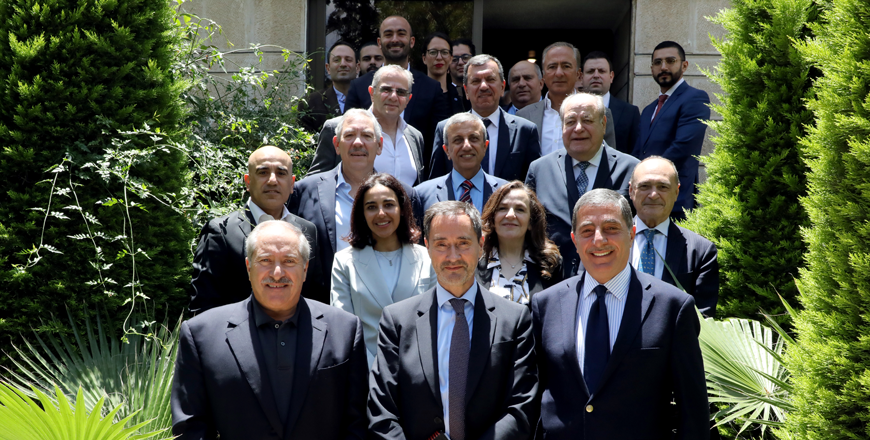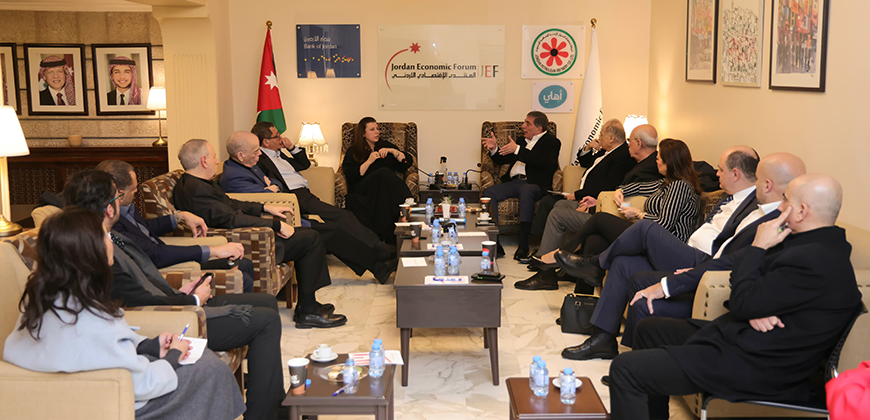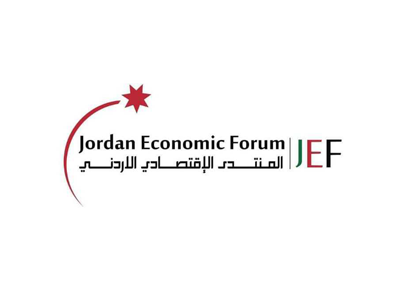You are here
Jordan Economic Forum discusses geopolitical tensions’ impact on Middle East
By JT - May 14,2024 - Last updated at May 14,2024

The Jordan Economic Forum organises a discussion titled ‘The Emerging Cold War: The Impact of US–China Rivalry on the Middle East’ (Photo courtesy of the JEF)
AMMAN — The Jordan Economic Forum (JEF) recently hosted former director of the Royal Institute of International Affairs, Robin Niblett, for a discussion titled “The Emerging Cold War: The Impact of US–China Rivalry on the Middle East”. The session featured several economic experts, members of parliament, and diplomatic representatives, focusing on the direct effects of current geopolitical tensions between major powers on the Middle East, particularly Jordan.
The session, moderated by the JEF’s Vice President Mazen Homoud, delved into how these global shifts might open new opportunities for Jordan while also presenting challenges that require careful attention. The discussion explored effective strategies to enhance benefits and tackle the challenges in the changing geopolitical landscape, according to a statement for The Jordan Times.
In his opening remarks, Homoud highlighted the escalating competition between the United States and China and its repercussions on the global order, especially in the Middle East. He pointed out the geopolitical conflicts frequently showcased in the media, stressing the importance of understanding these dynamics to analyse their local impacts.
Homoud emphasised that the challenges facing the region are not isolated from the global context, underlining the importance of economic integration and cooperation between Middle Eastern countries and the superpowers to promote stability and growth. He also stressed the need to understand these international tensions from a local perspective and their direct impact on the region’s economies and policies, the statement said.
Niblett discussed the geopolitical competition between the US and China and its effects on the global system, focusing on the Middle East. He began by highlighting Washington’s urgent need to garner as many allies as possible to compete in what could be seen as a new Cold War with China, which, despite not having an economy as large as America’s, remains a significant force to be reckoned with.
He further addressed the changing international relations, pointing to new alliances and trade agreements being forged worldwide. Niblett also emphasised the pivotal roles countries like India, Saudi Arabia, and Indonesia play in balancing the economic powers of the giants.
Continuing on the theme of opportunities, Niblett remarked on the substantial growth in trade among Southern countries, from about 18 per cent of global trade in 2019 to 28 per cent last year, highlighting the immense opportunities for nations like Jordan and its neighbours to benefit from these changes.
Niblett also spoke on major trade agreements like the Trans-Pacific Partnership, completed by Japan despite America’s withdrawal, and the Regional Comprehensive Economic Partnership that includes China, marking its first such involvement.
However, Niblett warned of potential risks accompanying these shifts, asserting the necessity for vigilance and precise analysis of possible impacts on the region. He urged Middle Eastern countries to wisely leverage the opportunities and challenges to enhance their economic and political interests, according to the statement.
Finally, Niblett shared his extensive experience as the director and CEO of the Royal Institute of International Affairs, Chatham House, noting how his years there allowed him to host numerous significant figures and engage with various global issues. He emphasised that the challenges he faced during his tenure made him more aware of the significant transformations occurring worldwide. After stepping down, he was asked to write a book summarising current global events and developments under the straightforward yet reflective title “The New Cold War: How The Contest Between The US and China Will Shape Our Century”, based on his broad experience and insights into transatlantic relations and his frequent travels to Asia, especially China.
Niblett touched on the concept of a new Cold War between the United States and China, shaping the new global dynamics, and highlighted that the world is moving toward intense competition where one party’s gain could be another’s loss, embodying the zero-sum nature of international conflicts, the statement said.
The meeting concluded with a discussion among attendees on how these transformations could affect the Middle East and specifically Jordan, emphasising the importance of understanding these changes to ensure the best possible use of available opportunities and effective management of future challenges.
Related Articles
AMMAN — The Jordan Economic Forum (JEF) has recently held a panel discussion featuring Dana Said Shuqom, which was attended by JEF President
AMMAN — The Jordan Economic Forum (JEF) on Tuesday released a report outlining the Kingdom's key economic challenges, drawing on the World E
AMMAN — The Jordan Economic Forum (JEF) has discussed with officials from the World Bank (WB) Jordan's Economic Modernisation Vision, econom


















